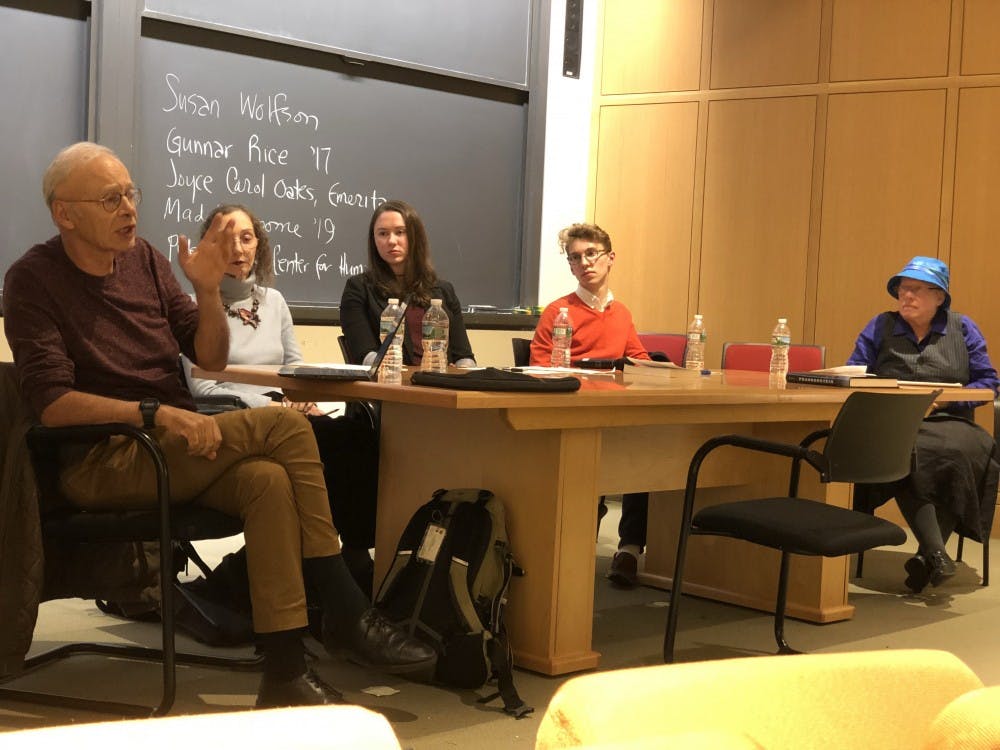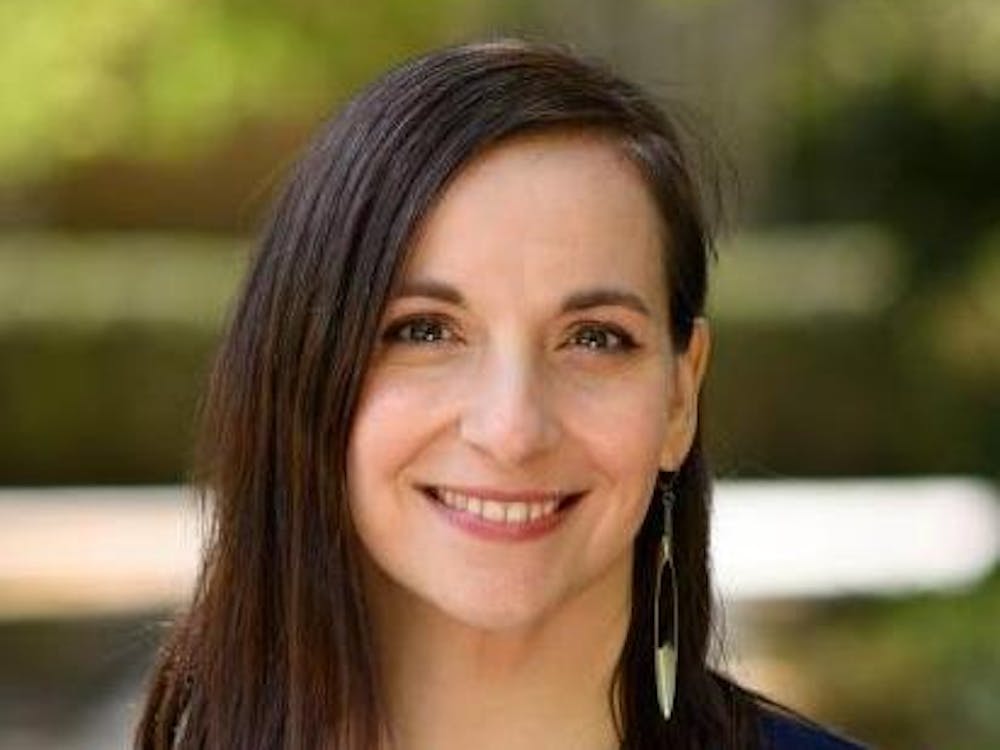Few novels in history have permeated the collective consciousness like Mary Shelley’s “Frankenstein,” said a panel of students and faculty on Thursday afternoon. This discussion, organized by the English department and Humanities Council, was the first in a series of lectures celebrating the bicentennial of the seminal novel’s publication.
The five-person panel examined the various ways in which “Frankenstein” has influenced literature, philosophy, and the pursuit of scientific knowledge. It was moderated by English department chair Susan Wolfson and featured bioethics professor Peter Singer, creative writing professor emerita Joyce Carol Oates, Gunnar Rice ’17, and Madelyn Broome ’19.
Rice, who was a student in the fall 2016 elective HUM 225: Frankenstein at 200, began by reading excerpts from his essay for the class. He spoke at length about how the novel incorporated both science and poetry, two fields that were in the midst of significant revolutions at the time of the novel’s writing.
Rice said that it was Shelley’s seamless incorporation of literary allusions and popular science that allowed it to blossom into a cultural phenomenon, even immediately after its publication.
Not only does “Frankenstein” remain in the pantheon of great English novels, but so do some of its literary descendants. Reading from an essay she delivered in Rome, Oates argued that Shelley’s feminist undertones greatly influenced Charlotte Perkins Gilman’s classic short story, “The Yellow Wallpaper,” and that H.P. Lovecraft likely looked to the book’s depiction of scientific horror when writing his own short stories.
Shelley also avoided calling Victor Frankenstein’s creation “a monster,” as is now commonly done; rather, his “monstrous” side was the result of his upbringing, and not his nature.
“Some think the sin was creating the creature, but in fact, that’s not the case,” said Oates. “The real sin was repudiating him immediately.”
But “Frankenstein” still persists not only because of the quality of its writing but also, as Broome noted, because of the timelessness of its content.
“We’re all sitting here today because ‘Frankenstein’ relates to something specifically human, and that is scientific fear,” said Broome.
Like her former classmate Rice, Broome read excerpts from her essay, in which she compared the cautionary central message of Shelley’s novel to the ethical issues raised by the Manhattan Project and the Space Race.
In her view, the fictional Victor Frankenstein was a predecessor to real scientists later, notably Robert Oppenheimer, the creator of the atomic bomb. Oppenheimer’s scientific pursuits, like those of Dr. Frankenstein, opened Pandora’s box and jeopardized humanity’s future.
Even today, according to panelist Singer, we can learn from “Frankenstein” and its titular character. During his portion of the talk, Singer spoke about the novel’s prescience to modern bioethical issues, notably genetic modification and artificial intelligence.

Singer referred to Dr. Frankenstein’s quest to create life as a “Darwinian error,” as he hoped to create an organism that had the potential to destroy him. Similarly, Dr. Frankenstein was almost convinced to create a mate for the creature, which would allow him to reproduce and, at worst, create a new dominant species.
His quest, according to Singer, is no different than our current aim to create an artificial “superintelligence,” which could potentially drive humanity to extinction.
Wolfson, however, disagreed. “[Dr. Frankenstein] has left his creature profoundly miserable in radical loneliness. All the creature is asking for is a companion. He is not asking for reproductive power,” he said.
Though the content in “Frankenstein” continues to raise thoughtful questions, Oates remarked that readers should not only be cognizant of the novel’s legacy, but that of its author as well.
“She was only 18 years old and it is astonishing how she created this novel as an amateur,” said Oates. “It’s genius.”
The panel was held at 4:30 p.m. in East Pyne 010 on Wednesday, Nov. 7.









